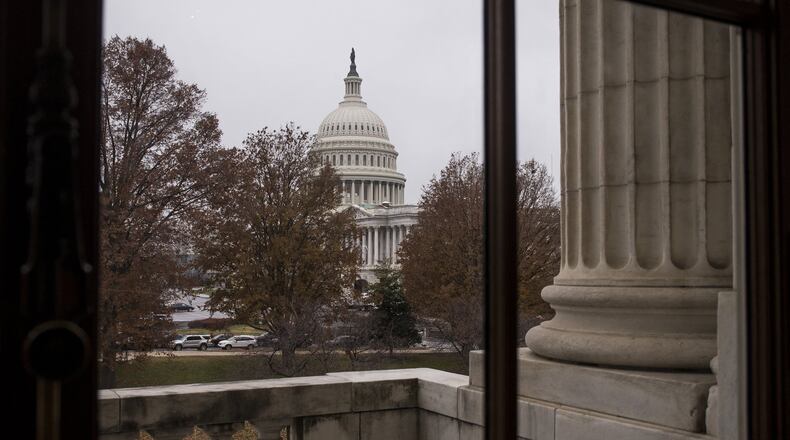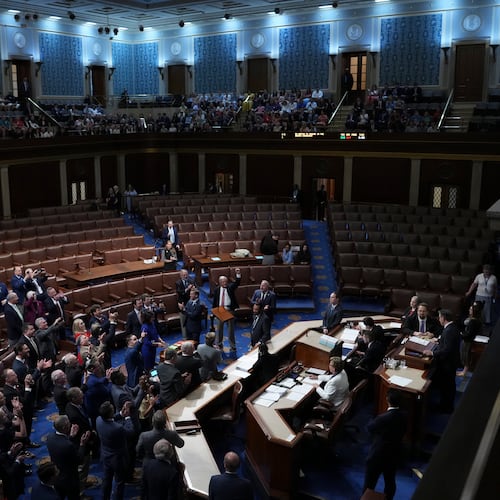As some 2020 Democratic Presidential candidates talk about spending trillions of dollars on “Medicare for All,” others are working hard to find common sense solutions to fix America’s healthcare system. In recent days, the Republican Study Committee and Job Creators Network ‘Healthcare for You’ both released common-sense plans to make healthcare more affordable and put patients first.
These plans seek to protect people with pre-existing conditions, empower patients with greater control of their healthcare choices and reduce premiums. Part of these solution will be to uncouple health savings accounts from high-deductible plans and propose significantly increasing the cap on such accounts to make choices in healthcare much more affordable for individuals and families.
In terms of policy fixes to help improve America’s healthcare system, another area for significant reform is the challenge our hospitals and medical institutions face in recruiting high-skilled talent such as doctors, medical professionals and medical researchers with PhD’s, masters’ degrees and specialist skills.
During my time as U.S. Secretary of Health and Human Services, when I visited medical schools and hospitals, one recurring theme I heard about repeatedly is how medical professionals from overseas face serious challenges in obtaining high-skilled worker visas to undertake life-changing medical research at hospitals across the United States. The reality is that our broken legal immigration system is failing our healthcare system, with America’s hospitals and U.S. businesses being unable to recruit the high-skilled talent that we need to compete in a global economy.
From a macroeconomic standpoint, we currently have more than 7 million job openings in the United States. The U.S. Department of Labor released a report detailing how we currently have more job openings than unemployed Americans. When it comes to legal immigration, our commander-in-chief recently remarked that “we’re not able to give preference to a doctor, a researcher, a student who graduated number-one in his class from the finest colleges in the world.”
President Trump is 100% right and the reality is that “companies are moving offices to other countries because our immigration rules prevent them from retaining highly skilled and even, if I might, totally brilliant people.” America’s last major overhaul of our legal admissions policy was 54 years ago. It’s clear that we need reform to our legal immigration system to put patients first and keep our economy moving forward.
In 2018, U.S. employers requested more than 200,000 H-1B high-skilled temporary work visas. Only 85,000 temporary work visas were issued, at a time when the United States has a major skills shortage. As former Chair of the House Budget Committee in Congress, it’s clear to me that if we want to compete against economic competitors such as China, Canada and Europe, the United States needs to be attracting and retaining the world’s best and brightest talent.
The United States needs educated high-skilled temporary workers with specialist STEM (science technology, engineering and math) skills. According to the National Foundation for American Policy, American companies increase U.S. employment by 5 workers for every H-1B temporary high-skilled worker visa requested. For small U.S. companies, 7.5 American jobs were created for every H1-B high-skilled worker. From a strategic standpoint, it makes no sense that a medical student, master’s or PhD student who is educated at an American university, oftentimes paid for with American resources, is forced to leave the country after completing their degree and take their specialist knowledge and skillset to a competitor country.
According to a new piece of research by Carnegie Mellon University, H-1B visa restrictions inadvertently push jobs out of the U.S. and represent bad economic policy. The reality is that if we want more innovation and medical research to take place in the United States, we must reform our immigration system and increase the numbers of high-skilled temporary work visas.
As Job Creators Network and the Republican Study Caucus propose commonsense solutions to improve America’s healthcare system, we need to look at fixes across the board that will reduce costs for patients and spur American innovation, while benefiting America’s hospitals and medical universities. As President Trump and my former colleagues in Congress have indicated, we “will not rest until Americans have the healthcare system they need and deserve, a system that finally puts American patients first.”
Dr. Tom Price is a former Health and Human Services Secretary for President Donald J. Trump. Price previously served in the U.S. Congress as Chairman of the House Budget Committee and currently serves as the Senior Health Policy Advisor for Job Creators Network.
About the Author
Keep Reading
The Latest
Featured



